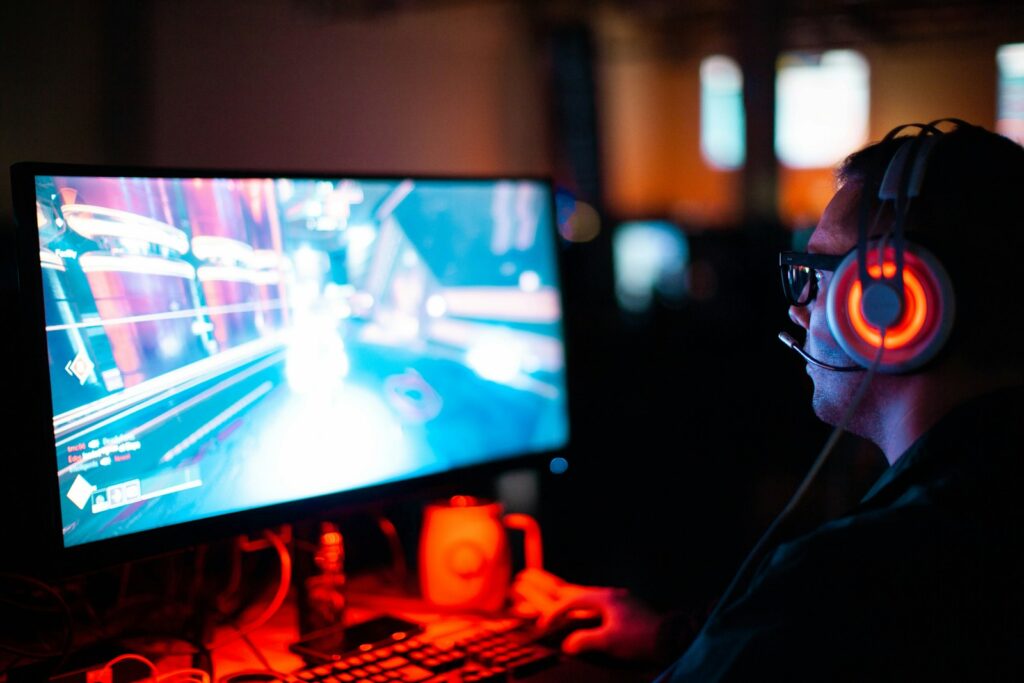Gaming in Modern Life: Beyond Entertainment

Video games have grown from simple pixelated distractions into complex virtual worlds that impact our lives in countless ways. Whether you are a casual mobile gamer or hardcore PC enthusiast, gaming now influences everything from our social connections to our cognitive development.
The Evolution of Gaming Culture
Gaming culture has gone through some crazy changes over the last few decades. What started in arcades and basements has exploded into a global phenomenon with its own language, heroes, and traditions.
“Gaming is not just playing; it’s experiencing stories, solving problems, and connecting with people worldwide,” says Jane McGonigal, a well-known game designer.
Today’s games offer immersive experiences that can transport you to different worlds and times. And the industry keeps growing – there are approximately 3.32 billion active gamers worldwide according to recent studies.
Competitive Gaming: The New Sports Arena
Esports has totally changed what it means to be an athlete. These days, pro gamers are celebrities with training schedules that would make traditional sports stars sweat!
Some of the biggest esports titles include:
- League of Legends
- Counter-Strike
- Dota 2
- Fortnite
The prize pools are getting ridiculous too – some tournaments offering millions in cash prizes. No wonder kids these days dream of going pro in gaming!
Gaining the Edge: Tools and Resources
In competitive gaming every advantage matters. Many players spend hours researching strategies, watching tutorials, and finding resources to improve their skills.
For tactical shooters like Escape from Tarkov, communities share knowledge and strategies constantly. Some players even look for private cheats on infocheats for Tarkov to understand advanced mechanics and improve their gameplay knowledge.
What separates the good from the skillful players is often their willingness to study the game beyond just playing it.
Gaming and Mental Health
Gaming’s relationship with mental health is complex and super individual. For many people, games provide valuable stress relief and escapism:
- Games offer controlled environments where you can feel accomplished.
- They provide social connections for people who might struggle in person.
- They can create flow states that reduce anxiety.
- They offer structured goals and rewards that feel satisfying.
However, balance is essential, as excessive gaming can sometimes contribute to sleep issues or social isolation.
The Secret Cognitive Benefits
When your parents told you games would rot your brain, they could not have been more wrong! Research shows that different genres of games can enhance specific cognitive abilities:
- Strategy games improve planning and decision-making.
- Action games enhance reaction time and visual processing.
- RPGs develop problem-solving and consequence understanding.
- Puzzle games boost logical thinking and pattern recognition.
According to studies from Cleveland Clinic, gaming can increase brain matter and improve cognitive function when played in moderation.
Gaming Communities: Finding Your Tribe
One of the most impressive aspects of gaming is the communities that form around shared interests. Whether it is guilds in MMOs, Discord servers for specific games, or local meetups there is something special about connecting with people who share your passion.
Research shows that online gaming can help combat loneliness and provide valuable social connections. A study from Edge Hill University found that MMO engagement correlated with stronger social identity and higher self-esteem.
Making Friends Through Pixels
The social benefits of gaming are often overlooked by non-gamers. In reality, multiplayer games create unique social spaces where:
- People from diverse backgrounds can meet on equal footing.
- Shy individuals can socialize more comfortably.
- Long-distance friendships can be maintained through shared activities.
- Team skills and cooperation are naturally developed.
During lockdowns and pandemic restrictions games became essential social lifelines for many people who could not meet in person.
The Future of Gaming
The future looks mind-blowing for gaming with technologies like VR, AR and cloud gaming becoming mainstream. We are heading toward games that blur the line between virtual and physical worlds even further.
“Gaming communities provide a sense of belonging and identity that can be especially important for people who might feel isolated in other aspects of their lives,” notes researcher Rachel Kowert.
As these technologies evolve gaming will become even more integrated into areas like education, fitness, and work. The gamers of tomorrow might not even think of gaming as separate from everyday life!





